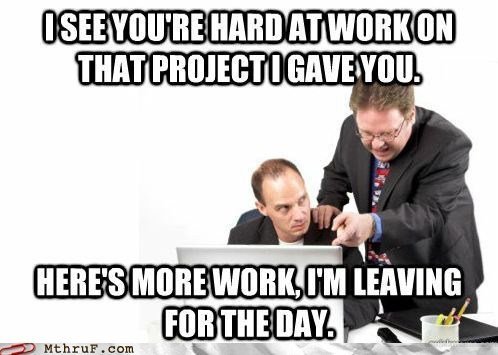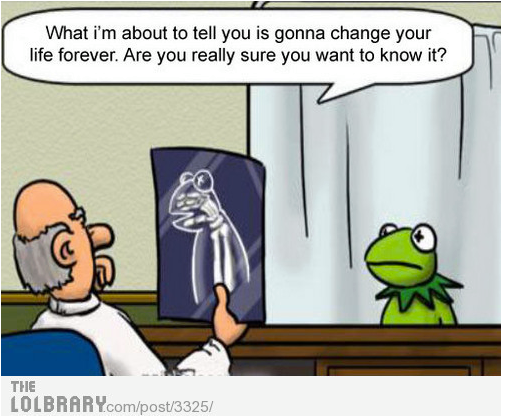
Forget Spencer (most misattributed it to Darwin, anyway); we all know the workplace (and honestly, life) isn't about "survival of the fittest." It's about the delicate art of becoming the favorite. You know those inexplicably successful folks with mediocre skills? They've cracked the code. Let's dissect this, shall we?
Favoritism is a topic that affects many aspects of our lives, not just the workplace. Whether it's in school, social circles, or even within families, favoritism can have a significant impact on our well-being and relationships. In this article, we will explore the anatomy of favoritism, its toll on individuals, and discuss whether it can be defeated.
At its core, favoritism is the unfair preference given to one person over others. It can manifest in various ways, such as a teacher consistently favoring a particular student, a boss promoting their favorite employee despite their qualifications, or a parent showing blatant favoritism towards one child over their siblings. This unequal treatment can lead to feelings of resentment, jealousy, and low self-esteem among those who are not the favored ones.
One of the most significant tolls of favoritism is its impact on relationships. When favoritism is present within a group, it creates a toxic environment where trust and camaraderie are undermined. Those who feel overlooked or undervalued may become disengaged and less motivated, leading to a decline in productivity and overall team morale. Moreover, favoritism can breed a sense of competition among individuals, as they strive to gain the favor of the person in power, further eroding the sense of unity within the group.
Favoritism - Not Just for the Workplace

Contrary to popular belief, favoritism isn't confined to soul-crushing cubicles. Teachers have their pets (who mysteriously avoid pop quizzes when hungover). Those coveted college spots? Often go to kids whose parents awkwardly schmooze at alumni mixers, not just the straight-A students. It's everywhere, people!
Outside of the workplace, favoritism can have long-lasting effects on individuals' mental and emotional well-being. In school, for example, a student who constantly witnesses their peers being favored over them may develop feelings of inadequacy and self-doubt. This can lead to a lack of confidence in their abilities and hinder their academic progress. Similarly, within families, favoritism can create rifts and strained relationships between siblings, as they struggle to understand why one of them is consistently favored while the others are left feeling neglected.
While favoritism may seem like an insurmountable obstacle, there are steps individuals can take to navigate its treacherous waters. Firstly, it is crucial to recognize that favoritism is not a reflection of one's worth or abilities. Understanding that the issue lies with the person showing favoritism, rather than with oneself, can help alleviate some of the negative emotions associated with being on the receiving end of unequal treatment.
Seeking support from trusted friends, family members, or mentors can provide a much-needed outlet for expressing frustrations and gaining perspective. It is essential to surround oneself with individuals who value and appreciate one's unique qualities, helping to counteract the negative effects of favoritism.
The Anatomy of Favoritism

It's a subtle blend of factors, rarely as transparent as just being the boss's golfing buddy (though that helps). Here's the playbook:
- The Art of Ingratiation: Master the fake laugh at terrible jokes. Remember birthdays with oddly specific cards. Compliment outfits that should never see daylight.
- The Illusion of Competence: Appear busy. Have many documents on your desk. Use buzzwords in the wrong context with supreme confidence. Never, ever admit a mistake.
- Strategic Proximity: Be seen. Hover near the water cooler when important people pass by. Volunteer for pointless committees. It's about presence, not productivity.
Favoritism is the act of showing preferential treatment to one person or group over others. It can manifest in various ways, such as giving more attention, resources, or opportunities to the chosen individual(s) while neglecting or marginalizing others. This behavior often stems from personal biases, relationships, or perceived qualities that the favored individual possesses.
At its core, favoritism is a reflection of human nature and our inherent tendency to form preferences and attachments. We are naturally drawn to people who share similar interests, values, or characteristics, and this can lead to the development of favoritism. However, when favoritism becomes excessive or unfair, it can create a toxic environment and breed resentment among those who feel left out.
One of the key factors that contribute to favoritism is the power dynamics within a given setting. Whether it's in a workplace, a social circle, or even within a family, individuals who hold positions of authority or influence often have the ability to exercise favoritism. This can be due to their ability to make decisions, allocate resources, or simply be in a position to provide opportunities to those they favor. Favoritism can also be fueled by personal biases and relationships. People naturally gravitate towards those they feel a connection with, whether it's due to shared experiences, similar backgrounds, or simply a personal liking. These personal biases can cloud judgment and lead to the unfair treatment of others who do not fit into the favored category.
Another aspect of favoritism is the perceived qualities that the favored individual possesses. This can include factors such as attractiveness, charisma, or even skills and abilities that are valued within a particular context. For example, in a competitive sports team, the coach may show favoritism towards players who consistently perform well and contribute to the team's success. While this may seem justified on the surface, it can create a sense of exclusion and unfairness among other team members who may not possess the same level of talent or skill.
It is important to note that favoritism is not always intentional or malicious. Sometimes, it can be unconscious or unintentional, driven by subconscious biases that individuals may not even be aware of. However, regardless of intent, the impact of favoritism can be significant, leading to feelings of exclusion, decreased morale, and a lack of trust among those who feel overlooked or marginalized.
The Toll of Favoritism
Sure, those favored few reap the rewards of their questionable tactics, but there's a broader cost:
Morale Black Hole: Imagine being the competent person consistently passed over for the endlessly nodding yes-man. That's a recipe for resentment hotter than office microwaved-fish.
Innovation? Ha! Why risk new ideas when staying chummy with the status quo gets you ahead? Favoritism breeds stagnation and an aversion to any sort of rocking the boat.
Society's Downward Spiral: When favoritism rules, we lose good leaders, brilliant thinkers, and those who'd challenge the unjust system. Think of the missed potential!
Favoritism can contribute to high turnover rates within an organization. When employees feel that promotions and rewards are based on favoritism rather than merit, they may become disengaged and seek opportunities elsewhere. This constant turnover can disrupt team dynamics, decrease institutional knowledge, and increase recruitment and training costs for the organization.
When favoritism is present, it often stifles creativity and innovation within a group or organization. Individuals who are not favored may be hesitant to share their ideas or take risks, fearing that their contributions will go unnoticed or be overshadowed by those of the favored individuals. This can lead to a lack of fresh perspectives and innovative solutions, ultimately hindering the group's ability to adapt and thrive in a rapidly changing environment.
Favoritism erodes trust among team members and undermines the integrity of leadership. When people perceive that decisions are being made based on personal relationships rather than objective criteria, it creates a sense of unfairness and breeds cynicism. This erosion of trust can have long-lasting effects, making it difficult for the group or organization to rebuild relationships and work collaboratively towards shared goals.
Can Favoritism Be Defeated? (It Probably Can't)
Sadly, this social disease is deeply embedded. But hey, a little awareness can't hurt, right? Here's hoping we can at least become consciously unfair:
- Transparency-ish: Companies should pretend to care about objective metrics. This gives the illusion of fairness, which slightly pacifies the un-favored.
- Diversity Bingo: Minorities make those in power feel virtuous about being biased towards all the other types of people. Progress? Maybe a tiny bit.
- "Meritocracy" Window-Dressing: Keep touting that 'merit' stuff. The fact that nobody believes it anymore is a step towards honesty at least...right?
- Real Talk: True fairness is an elusive unicorn in a world governed by human ego and self-interest. But perhaps by shining a humorously cynical light on favoritism, we can inch toward a slightly less ridiculous system. Or at least get better at exploiting it. You decide.

NB: Image sources are in the images.


